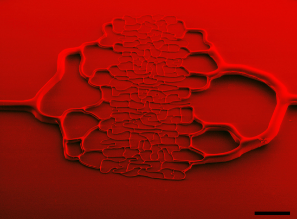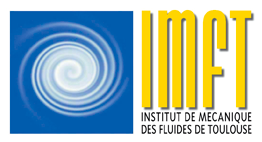Transport, mixing and rheology of blood suspensions in the microcirculation
Manouk Abkarian, DR CNRS au Centre de Biologie Structurale de Montpellier
Mercredi 4 décembre à 14 h 00 Amphithéâtre Nougaro
This presentation explores the impact of blood being a dense suspension of deformable red blood cells (RBCs) in three problems associated to the microcirculation.
Firstly, at the capillary scale, RBCs navigate tiny vessel networks, deforming into various shapes to deliver respiratory gases effectively. The interaction of RBCs with network nodes influences overall blood perfusion. Our experiments reveal that RBC flow through uniform networks shows non-linear transport characteristics with pressure, influenced by RBC volume fraction and network topology. This behavior is linked to the local membrane dynamics of RBCs.
Secondly, the importance of blood mixing at the arterio-venule scale is discussed. Effective mixing in microcirculation is crucial for nutrient and waste transport. In vivo, RBC mixing is limited to their own effective diffusion. However, we realise experiments with fluorescent macromolecules in RBC suspensions and we show that mixing improves with higher flow rates and specific volume fractions, suggesting RBCs aid in maintaining a well-mixed blood state.
Lastly, the shear-thinning property of blood, essential for vascular perfusion, is examined. RBC dynamics under physiological conditions reveal complex morphological transitions under increasing shear stress, challenging the current understanding of shear thinning that RBCs align and elongate in flow. These transitions affect blood rheology and are influenced by pathological changes in plasma composition or RBC properties, impacting blood flow behavior.

